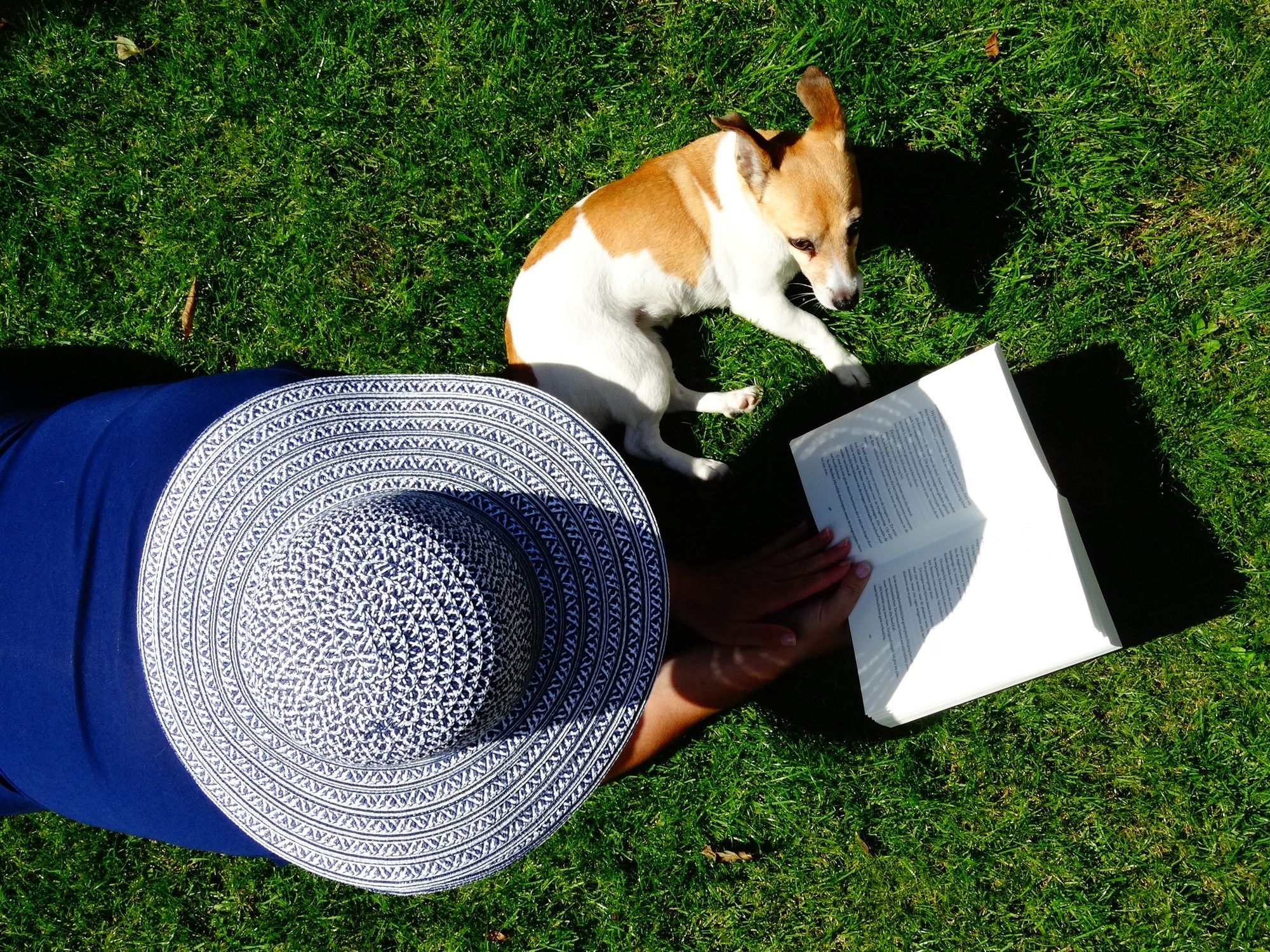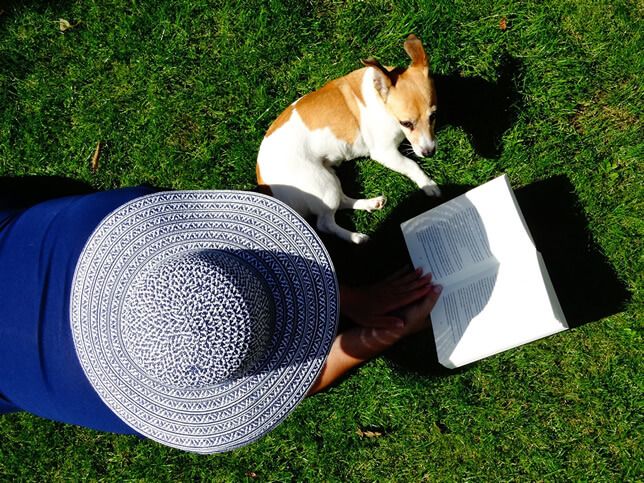What Is a Beta Reader and How to Find One

What is a beta reader and how to find one is brought to you by Fanni Sütő. Fanni writes poetry, short stories and a growing number of novels-in-progress. She publishes in English and Hungarian and finds inspiration in reading, paintings and music. She writes about everything which comes in her way or goes bump in the night. She tries to find the magical in the everyday and likes to spy on the secret life of cities and their inhabitants. Previous publications include: The Casket of Fictional Delights, Tincture Journal, Enchanted Conversation. Fundead Publications, 600 Second Saga.

Being a writer is no easy feat, especially if one chooses the path of self-publishing where, to misquote a classic, with great freedom comes great responsibility.
One has to oversee every step of the production and one has to be in control all the time. This, however, doesn’t mean that you have to be alone. Quite the contrary, you should have a team of professionals around you who can assist you and get you various type of feedback and support. Today I am going to tell you about the importance of beta readers and critique partners, and give you some ideas on how to find beta readers. Last but not least, I’ll briefly speak about blog hops, which are a great way to get feedback and encouragement from your fellow writers.

What is a beta reader and a critique partner?
You finished your novel yesterday and you’re already planning to publish it tomorrow? I would strongly advise against it. After you let it rest for a few weeks, give it another read with a fresh eye and edit it like there’s no tomorrow. You’ll probably find a few typos, unnecessary digressions and things to rewrite completely. When you are more or less happy with the result, it’s time to ask for a second opinion. Also, if you can't afford a professional editor, this is a great route to take.
Critique partners
Critique partners (cps) are usually other writers who look at your story with the eyes of a writer, trying to help you fill in plot holes, make your characters more believable and also to spot grammar mistakes. Very often you don’t only exchange stories, but even form a long lasting partnership.
I started writing about five years ago, that’s also when I found my two long lasting critique partners who have helped me along my writer’s journey ever since.
The advantages of long term partners are that you know each other’s strengths and weaknesses, so you know what to look out for; you know each other’s working methods and you can even become close friends.
The disadvantages are roughly the same: sometimes you know the writing of the other almost as well as your own and it makes it difficult to remain impartial and spot mistakes.
That is why I’d suggest having a few occasional cps beside your trusty old ones.

Beta readers
What is beta reading? We generally define beta readers as anyone who can read and then give a review of your book. They can tell you how they found the story on the global level, if they liked the characters, figured out the mystery etc. You can ask friends or even family members to read the manuscript. But good beta readers will give an objective and unbiased opinion. It is also advisable to try to find readers with diverse backgrounds, different age groups, genders, occupations to be able to have a varied input on your work.
Sensitivity readers
If you write about characters with markedly different background than yours, you might also want to consider consulting some Sensitivity Readers who would help you avoid unwittingly hurting someone. You can look for sensitivity readers among your friends, or hire somebody from a sensitivity reader database. You can find out more about sensitivity readers on the Writing in the Margins website. Sensitivity readers can also be useful when you are not writing about characters with different backgrounds. They are here to discover “blind spots” and bring more inclusion and diversity into publishing. You can read more on this topic in this HuffPost article.
How to find beta readers
So how to find a beta reader? A good place to look is Scribophile, a website aimed at writers where you can upload your stories and get some useful criticism. The system works well because to upload your story, you have to earn “karma points” by reading the writings of others. This way it encourages interaction, and gives everybody a chance to read and be read.
This way of finding beta readers for novels is free. All you need to do is sign up-but you can only upload a limited amount of work, so it’s really worth checking out the premium option. It is also a great place to find like minded writers with whom you can later exchange stories. Being a member helped me both with my writing and with networking in the writing community. If you want to know more about critique partners, I suggest reading this very informative article on Bridgid Gallagher’s blog.

Blog hops: what are they and where to find them?
Another way to get some reader comments on your writing is by participating in various blog hops. Blog hops can give you the opportunity to showcase a recent short story to an audience different from your normal audience.
Blog hops are usually advertised at the blog of the organiser, then anyone can join: just share your writing. Due the formats of the blog hop, only short stories or snippets from your longer work-in-progress can participate. Some blog hops are thematic or have formatting requirements.
How to sign-up for a blog hop
It is simple: just add your name to the list! It is common courtesy to share the link to the blog hop and maybe links of some other authors at the end of your writing.
Blog hops usually get you several reviews: your reviewers won’t help you with the in depth editing of your work, but it’s always nice to have some encouragement and kind words. Not to mention the fact that participating in blog hops can bring some readers to your website and can help you discover the work of fellow writers.
As I’ve mentioned before, these comments are usually not very detailed and almost always focus only on the things the reader liked, but they can help you in deciding what are the strong points of your writing and what are the things that stand out to the reader even after a short encounter.
For a list of blog hops visit the blog of Raimey Gallant. The ones I’ve tried and I’m very happy about are:
- Story Time blog hop, where you share a speculative short story four times a year.
- Weekend Writing Warriors, where you share a snippet of your novel in progress every weekend.
- Authortoolbox blog hop, which is not about fiction, but about writing advice. It can still be useful to learn about the craft and to network.
To sum up, even if you decide for self-publishing, you don’t need to face the writing process alone. You can find help in many forms. Critique partners are other kind of beta writers who look at your work with the writer’s eyes and give you advice from a professional point of view. Things on character development and more. Betas look at things from the reader’s point of view and give you feedback on the reading experience. Last but not least, blog hops give you a lot of encouragement, a sneak peek into your strengths and an opportunity to join a supportive community of writers.